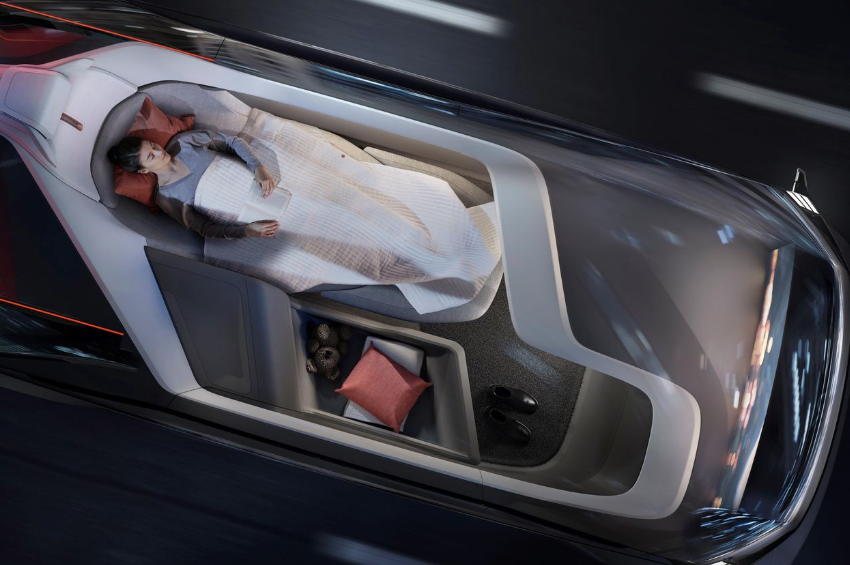Although the deployment of a number of technologies may have been delayed due to the pandemic, others may accelerate as a result of it. Just as the pandemic and lockdown removed the barrier (now 20 years into the 21st Century!) for paperless workflow in the office, remote meetings, remote work, education disruption, etc., others may be demanded and accepted for a number of reasons and preferences in a post-pandemic world as noted in the Wall Street Journal:
“Over the last 100 years you can’t really say the car was designed around the people; they got what space was left over”…
…As the auto industry contemplates the impact of technology—from electric cars, internet connectivity, and ultimately vehicles that drive themselves—designers are reinventing the interior of the automobile and how its passengers experience the ride. One doesn’t have to imagine some fantastic future with Jetsons-like inventions zipping around on the ground and in the air because the future is already on the drawing boards of car makers today.
What is most striking in these automobile innovations (and very consistent with the unfolding of the whole pandemic response) is the great reversal that cars now represent as a “safe space.” This of course is it due to both the inherent risk of traveling as well as the potential inconvenience of protracted wait times (or potentially getting stranded). So traveling within a large state such as California, people may simply choose to use their cars. The “oasis” concept revolves around the eventual full engagement of self-driving vehicles, technology with “head up” screens and embeded within the window, space utilization for sleeping, and ride-hailing/self-parking, all designed to prividing to create a viable and formitable competitor to air travel.
Again, what is most interesting is that these concepts are not new, but the demand may entirely shift due to the realities of a post-pandemic world. See the full WSJ post here.

